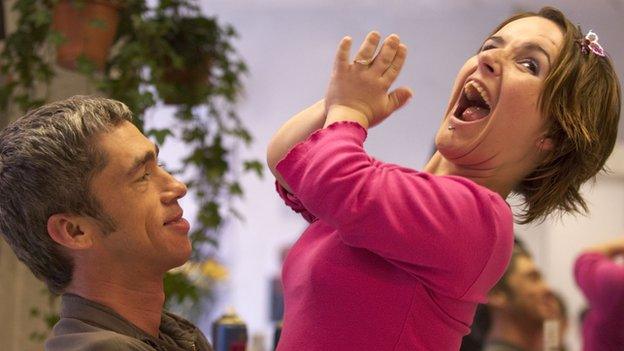Perfect storm: The agency for disabled talent
- Published
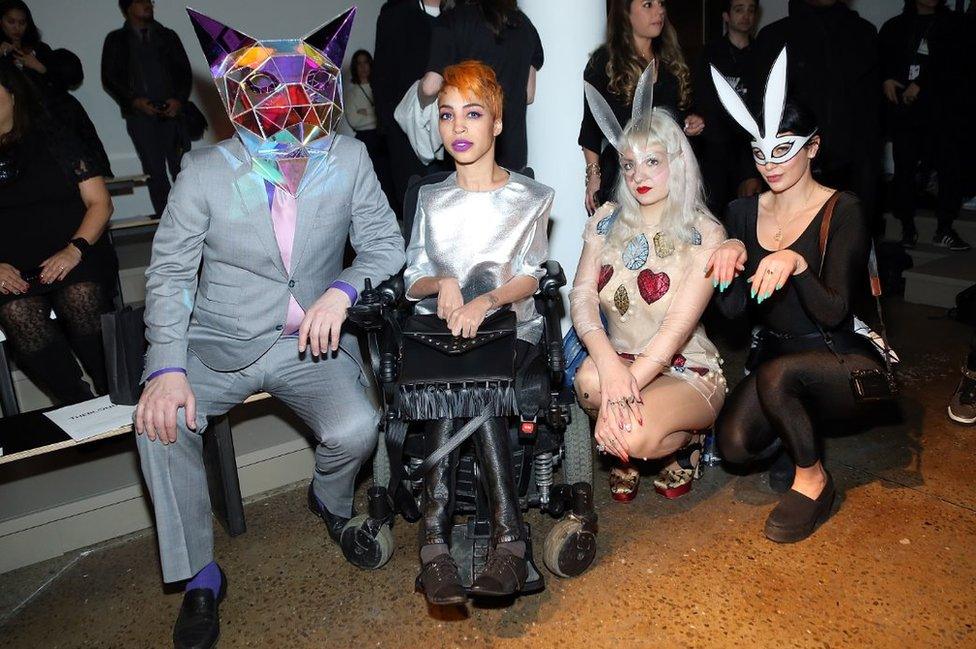
Model Jillian Mercado has broken the mould and is signed to a mainstream agency
Acting and modelling are notoriously fickle industries often trading on perfection, but in the 1990s one woman challenged the status quo by setting up a professional talent agency for disabled people.
It was 1993 when Louise Dyson's agency was approached by Sunrise Medical for disabled models to promote its wheelchairs.
She was stumped. At that time the Louise Dyson Agency Ltd dealt only in providing flawless models for clients such as Rolls-Royce and Laura Ashley.
"We didn't know any models with a disability and I immediately thought that was such an obvious thing for advertising - to be representative of the consumer," she says. "But until that point it had never crossed my mind."
The request led to Dyson helping to organise the Sunrise Model in a Million competition - the UK's first professional modelling contest for people with disabilities - which was won by Sharron Murray and Jason Ward who both received modelling contracts.
The popularity of the contest piqued Dyson's interest and she put out a call for disabled models and actors interested in representation - she was flooded with more than 600 requests.
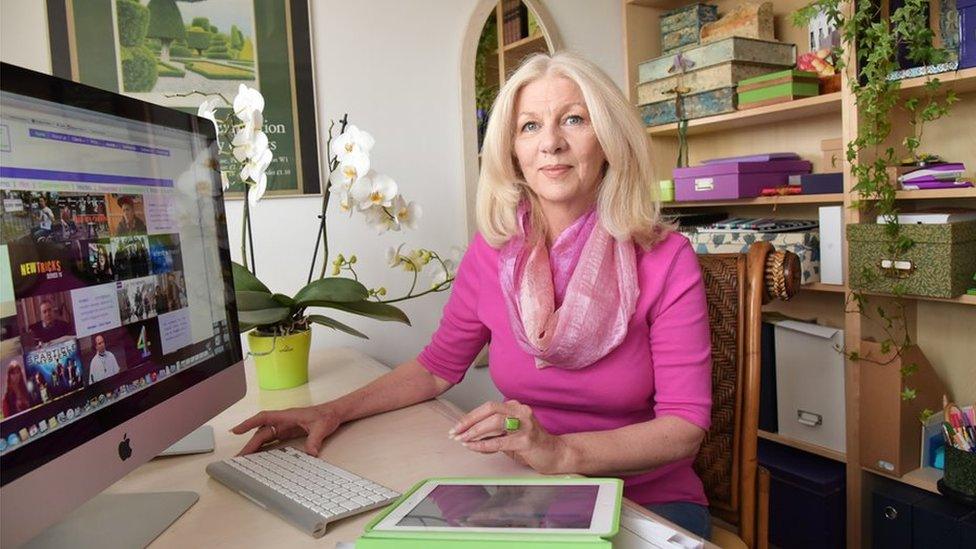
Louise Dyson has run VisABLE for 23 years
Emboldened by the response she took a leap of faith, sold shares in her first agency and established VisABLE - an agency for disabled actors, presenters and models.
But the doors were not as open as she had anticipated.
"Although everybody said all the right things I knew they thought I'd gone mad and no one gave us any business in advertising for a long time.
"We really had to make a business case as to why to include disabled people in advertising."
It's a situation she is still perplexed by given that the market surrounding disability - known as the Purple Pound - is worth an estimated £249bn in the UK.
"If you use a disabled actor in a campaign it means not only will disabled people support a company, so will friends and relatives." Crucially, she says, "It's a way of distinguishing against your competition."
Signed to Dyson's books is Shannon Murray, the original winner of the Sunrise competition. She took the crown aged 17, three years after she was paralysed from the waist down in a diving accident.
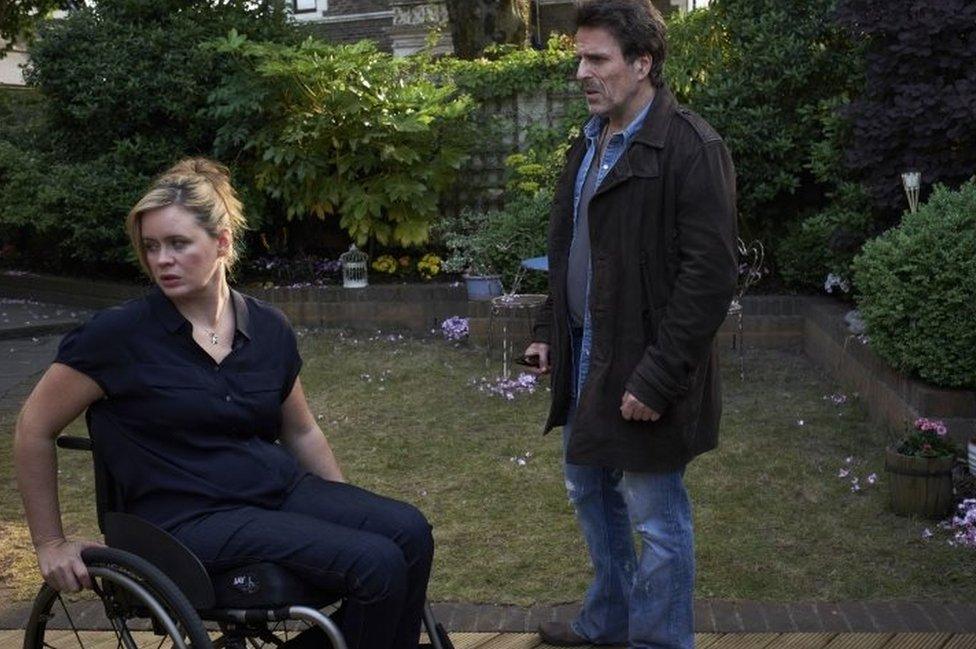
Shannon Murray has appeared in series such as Co-Owner Of A Lonely Heart
Murray had harboured dreams of becoming an actress but gave up on them after her accident "because there weren't any actors in wheelchairs on TV".
The modelling career thrust upon her gave her a chance to challenge that.
"I loved doing shoots but I wanted to put out a much stronger message, that fashion should be inclusive.
"I was very aware that the teenagers I was meeting in the spinal injuries unit were still young, fashionable, wanting to go to nightclubs and had dilemmas over boys but that wasn't what I saw in the media."
Her moment in the spotlight, which challenged perceptions, was warmly received, but she says, only because the fashion houses had requested a model in a wheelchair. "If I'd turned up wanting to walk down the runway it would have been a slightly different reaction."
It is this exclusive inclusivity that is the challenge facing the industry in 2017.
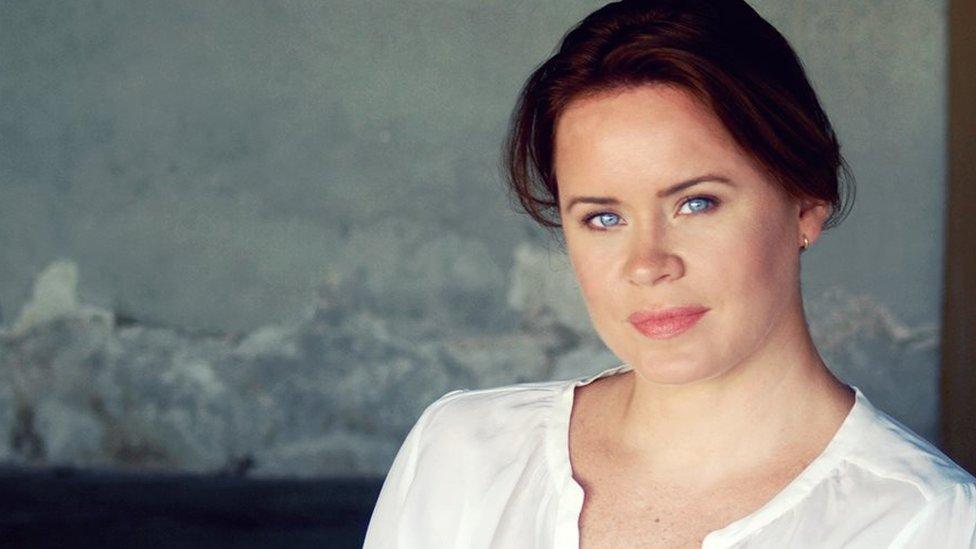
Shannon Murray continues to work both in the modelling and acting industries
The notion that a fashion house or casting agent would request a woman in her 40s to play a mother, regardless of whether she is disabled or not is the ideal they are aiming for.
Murray says: "Lots of people are talking about it and saying they're prepared to do it, but it hasn't happened yet.
"It's the place we want to be in, the same way that black or Asian actors would like colour-blind casting, so we're chosen on our skill."
In New York model Jillian Mercado seems to have cracked the surface. The 29-year-old, who has muscular dystrophy, is signed to the mainstream IMG Models and was used by Beyonce in a recent merchandise campaign which Murray describes as "brilliant" and proves "we're getting there".
Murray, a model-turned-actress, who has appeared in the likes of CLASS and Casualty, says the acting world is a little ahead of the fashion industry.
"Fashion is about trying to sell an aspirational view but in acting there's much less focus on looks, it's what you can do to bring the character off the page, and writers are finally waking up to the fact that there is drama in disabled lives."
Dyson agrees that TV was more open with a greater "desire to embrace diversity" and many of her clients have appeared in dramas including Casualty, Silent Witness and Downton Abbey.
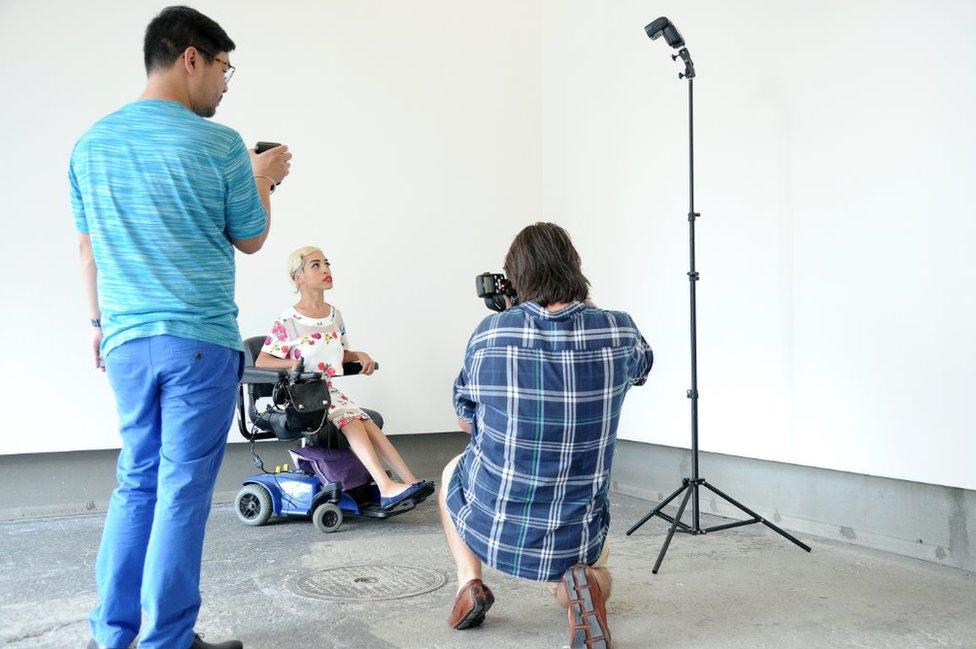
Jillian Mercado during a fashion shoot ahead of New York Fashion Week
But VisABLE's aim remains to seek work for its clients where their disability is "incidental".
''The whole point of VisABLE is to persuade advertisers and producers to offer bookings to artists irrespective of the fact that they have characteristics," Murray says.
"If someone's advertising a product like shampoo and they happen to have a disability which is not directly relevant it's the perfect form of inclusivity."
Twenty-three years into the business and Dyson says the situation has "improved massively" since her first days with the business expanding globally with recent work in Mexico, South Africa and France.
"It began to improve just before the Paralympics," she says. "That gave a boost to everybody regarding preconceptions and disability."
Drama schools and theatre spaces have also been brought up to date and made much more accessible, but Dyson says improvements still need to be made.
"The biggest obstacle in everything we're trying to do is that people still tend to think of a disabled role and who they can put into that role instead of seeing it the other way round.
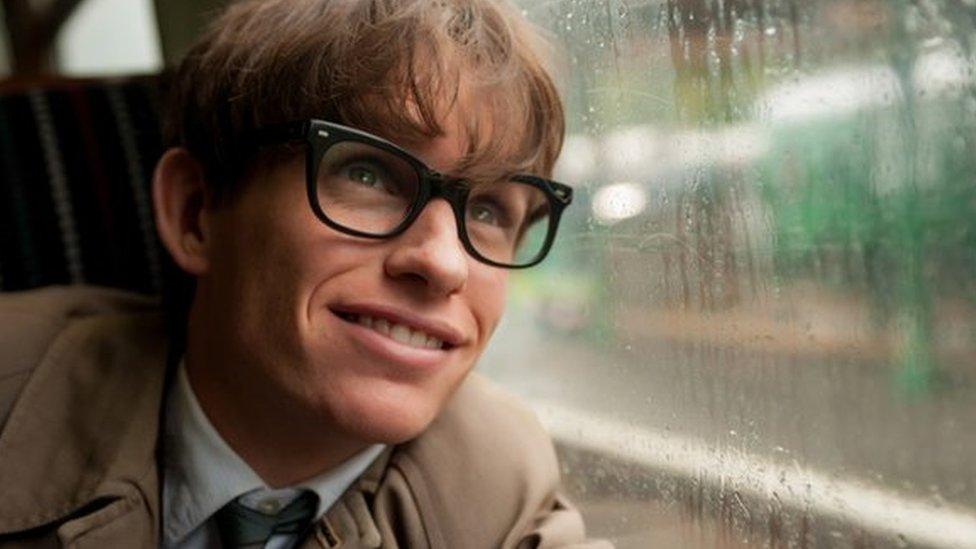
Eddie Redmayne received praise from many for his depiction of Stephen Hawking but should a disabled actor have been given a shot at the role?
"They should see everyone for every role and filter out people because of their unsuitability. If they need a 70-year-old, everyone under 70 is unsuitable. Disability shouldn't be the reason to exclude people, everyone should be considered for each role.
"Then if the person isn't good enough, fair enough."
Broadcasters have set up initiatives over the years aimed at improving the on-screen presence of disabled people.
The BBC is hoping to hit a target of quadrupling the number of people on screen by the end of the year and 2016 was the Year of Disability for Channel Four.
"There are some moves in that direction but in practice it hasn't happened much yet," Dyson says.
"I try to stun them with the professionalism and capabilities of artists from VisABLE and leave them reviewing their own preconceptions."

Disability Works

The BBC's business and economics unit is looking at how businesses work with people with disabilities and how disabled people have made business work for them
A range of stories will feature across online, TV and radio from 20-24 February 2017
On Twitter and Facebook you can follow the hashtag #DisabilityWorks and at the end of the week you can download the Ouch podcast

- Published22 February 2017
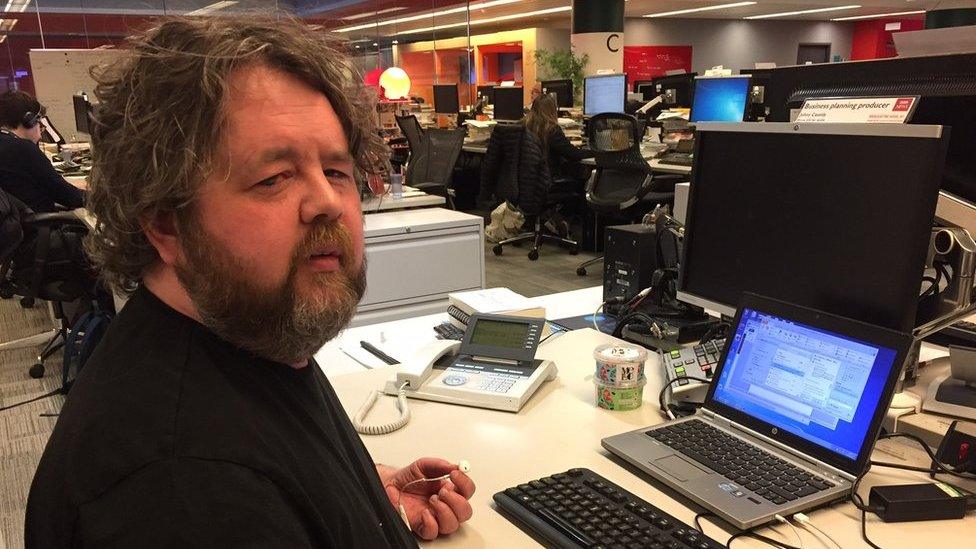
- Published18 January 2015
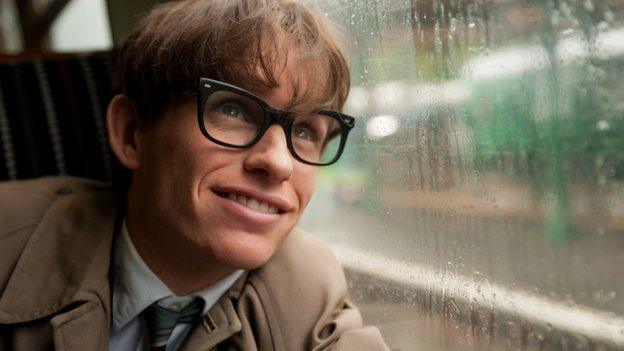
- Published9 February 2015
